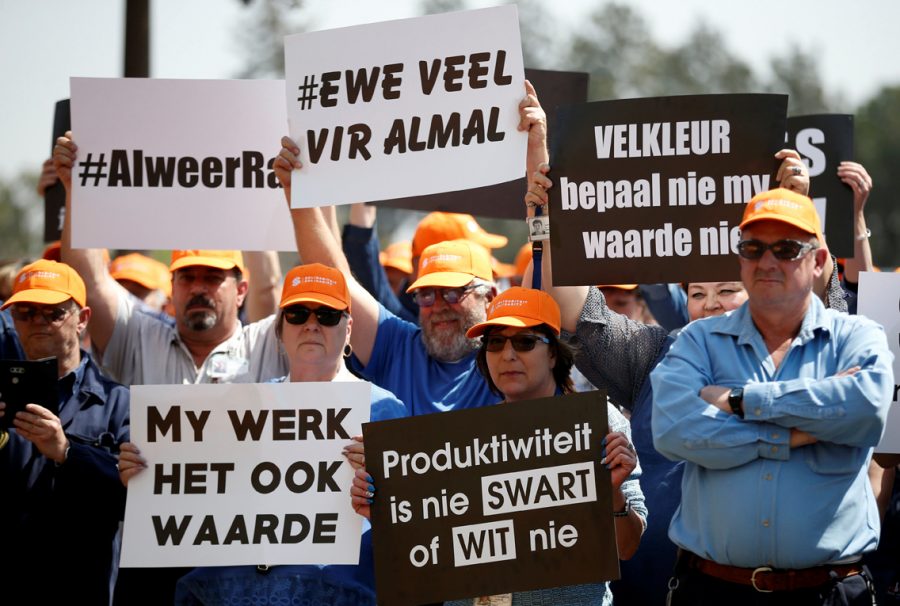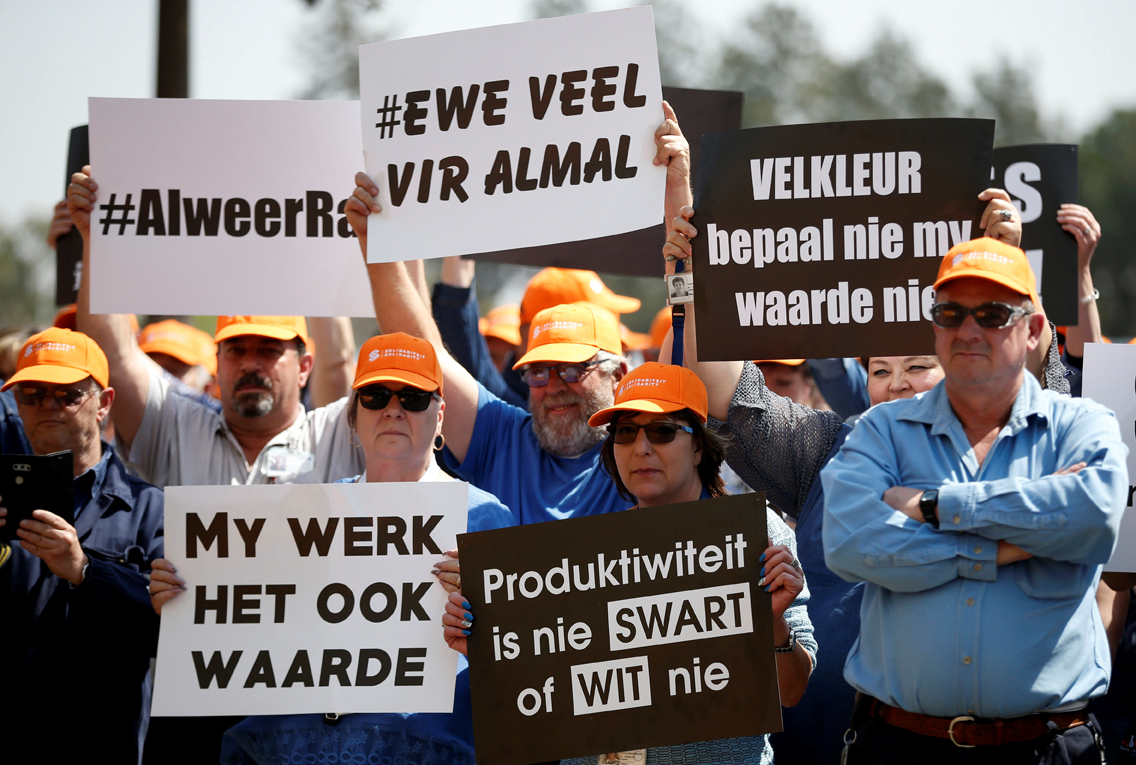
White Unionised Workers Protest at Sasol Plant Over Black Share Scheme
SASOLBURG, South Africa (Reuters) – About 100 workers from South Africa’s mainly white Solidarity union staged a brief protest outside Sasol’s chemicals plant in Sasolburg on Wednesday over a share scheme offered exclusively to black staff. Solidarity union leaders, who say the scheme is discriminatory because it excludes white workers, handed over a memorandum criticising […]

SASOLBURG, South Africa (Reuters) – About 100 workers from South Africa’s mainly white Solidarity union staged a brief protest outside Sasol’s chemicals plant in Sasolburg on Wednesday over a share scheme offered exclusively to black staff.

Solidarity union leaders, who say the scheme is discriminatory because it excludes white workers, handed over a memorandum criticising the plan to Sasol’s managers at Sasolburg, cheered on by workers.
The energy company, known for pioneering the conversion of coal to fuel, manufactures chemicals at the Sasolburg plant located 100 km (62 miles) south of Johannesburg.
The workers wore orange caps and some of them waved placards with slogans such as “Shame on you Sasol” and in the Afrikaans language, “Swart en Wit is Waardig”, which means “Black and White are worthy”.
Some barbecued meat for their colleagues during the lunch time protest, which lasted for about an hour.
“What this scheme does, is to divide workers simply on the basis of race,” Dirk Hermann, chief executive of the Solidarity trade union, told the workers. “We want a future of inclusion and not a future of exclusion.”
The union’s 6,300 members began a go-slow at the company on Monday and plan to hold a full strike on Thursday.
Sasol, which employs around 26,000 people in South Africa, said it had made contingency plans.
Company spokesman Alex Anderson said the Sasolburg plant is undergoing a scheduled maintenance shutdown.
“There were no interruptions. Operations continued as normal,” Anderson said.
Sasol has said that it implemented the share scheme in line with South African laws which require companies to meet quotas on black ownership, employment and procurement as part of a drive to reverse decades of exclusion under apartheid.
Meeting the rules makes a company more likely to qualify for government tenders.
Sasol said in addition to meeting black economic empowerment rules, the plan was backed by shareholders.
But Solidarity said the scheme was discriminatory and that it would file a complaint to U.S. regulators. Sasol also operates in the United States.
Solidarity’s Herman has said he hopes Solidarity can put pressure on Sasol to include other workers.
He said the union cannot take Sasol to court over the scheme because the Commission for Conciliation, Mediation and Arbitration, South Africa’s main authority for mediating labour disputes, ruled that Solidarity did not have a legal right to challenge Sasol’s scheme in court and could only push its cause through industrial action.
(Writing by James Macharia; editing by Jason Neely)
